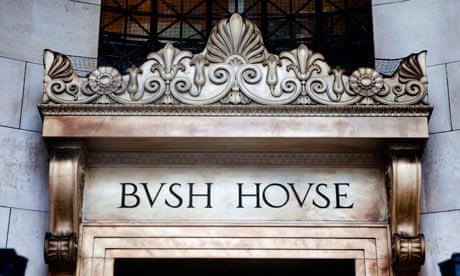Hard choices and change have been in the air for the BBC's World Service for a long time. No one who cares about serious journalism, Britain's place in the world or the importance of reliable news and information in developing countries can view last week's announcement with anything but regret, bordering on dismay. But in truth, a moment like this has been years in gestation.
The World Service has a unique ethos little understood in the UK. Most people in Britain know of, but seldom listen to, the English language radio service – but the bulk of the weekly 180 million audience to listen in their own languages – 45 of them a decade ago, 31 of them today, 26 of them following last week's cuts. Those services are run on shoestring budgets in comparison to the BBC's domestic services, but can still act as a news lifeline to their listeners and simultaneously root intelligence and understanding of the world within the BBC.
Years of efficiency measures on slender budgets and scaled down staffing have left little to cut. So last week was a moment when a significant portion of the service toppled over. Cuts of 16% in government grants, compounded by the additional costs and pension deficits faced by the organisation, meant it was impossible to maintain the full range of services.
For long-standing loyalists, many of whom will be joining campaigns and vigils to save the unsaveable, the unique values of the World Service seem imbued in the brickwork of Bush House. Yet any visitor can't fail to notice the signs of ageing and decay in a building clearly imagined in a different age. Similarly the original vision for the World Service, announced by Lord Reith as being in the interests of all mankind, seems to be from a different era.
For the six years I was the director of global news, encompassing the World Service, there was a parallel conversation in the annual budget round about how the BBC's international services would look if they were invented today. As with many media organisations struggling with their digital transition, legacy structures and costs are an obstacle to fulfilling its new potential. Shortwave broadcasting has been in gradual but accelerating decline for years; FM partnerships around the world have propped up audience figures; limited moves into TV have proven expensive, the web and mobile have been promising but from a very low base.
What's needed is to deal with these cuts as swiftly and compassionately as possible and accept a transformational moment. Then, reinvent a vision of the World Service fit for today: multimedia, differentiated by its global intelligence, addressing the needs of younger and older audiences, clearly focused on the issues of today's world rather than living on a reputation forged through the conflicts of the 20th century. Honouring the past, but embracing the future. It's what successive managers have tried to do for the last decade, but they have struggled against political, corporate and staff conservatism.
The integration of the World Service into the licence fee in three years' time, and the move from Bush House to the new Broadcasting House development with the rest of the BBC's news operations, provides an opportunity. There will be scope for genuine efficiencies, the chance to deploy new technology, and to pool resources and expertise. It will be removed from Whitehall infighting over budgets.
The BBC will need to provide some constitutional protection for its international remit and resources. But, with vision and leadership as opposed to political accommodation, a project as ambitious as its creation could emerge. There is no question it is needed. The BBC remains a uniquely trusted institution at a time when there is an increasing premium on reliable, high quality news and information. Globalisation requires a better and more sophisticated dialogue. This kind of soft power is one of the principal means of ensuring British values still count for something.
So we should regret the loss of good and long-standing services and the loss of jobs for hundreds of good and committed staff. But rather than lament or try to hang on to the past, we should recognise the opportunity to refashion an important British export to the world in a way which will strengthen our voice.
Richard Sambrook is global vice chairman of Edelman and was director, BBC Global News from 2004 to 2010
